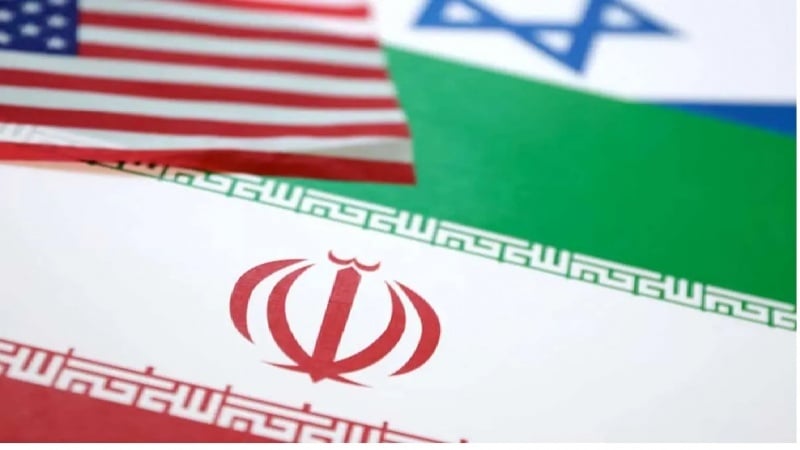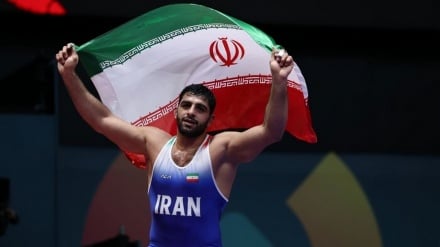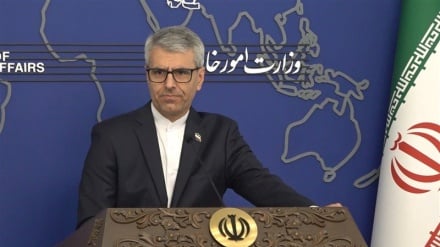Why cognitive and political war against Iran has intensified?
-

Why cognitive and political war against Iran has intensified?
Pars Today – While the Zionist regime and the United States have shifted to a cognitive and narrative war against Iran following the 12-day war, some European countries are also pursuing political pressure.
After the end of Israel’s 12-day war against Iran, Tel Aviv and Washington have launched a narrative and cognitive campaign against the Islamic Republic of Iran. The Zionist regime and the U.S. have tried to present themselves as victors in the war by referencing the assassination of commanders and attacks on Iran’s nuclear facilities—without offering any images or statistics on the human, economic, and infrastructural damages inflicted on the regime by Iranian missiles.
In line with this effort, numerous videos have been published showing Israeli attacks on Iran, including strikes on civilians, aiming to inject fear and intimidation into Iranian society.
Simultaneously, while the U.S. and Israel pursue this agenda, several European countries are taking up another front of pressure against Iran through political means. On Thursday night, the governments of Albania, Germany, Austria, Belgium, Canada, Denmark, Spain, the United States, Finland, France, the Netherlands, the United Kingdom, Sweden, and the Czech Republic issued a joint statement claiming they are facing increasing threats allegedly linked to Iranian intelligence agencies on their territory.
The statement, available on the websites of the French and U.S. foreign ministries, asserts:
"We stand united in opposing the efforts of Iranian intelligence services to commit killings, kidnappings, and harassment of individuals in Europe and North America. These actions are a clear violation of our sovereignty."
The key question is: What are the objectives of the cognitive and political war against the Islamic Republic of Iran?
The most significant objective of the cognitive and political war against the Islamic Republic of Iran is to influence the decision-making of Iranian officials. The United States and its allies are attempting to extract political concessions from Iranian authorities at the negotiating table through the application of cognitive and political pressure. This cognitive and political warfare is essentially a continuation of military confrontation. These countries, along with the Zionist regime, are now trying to create mental confusion among Iranian decision-makers.
Another aim of this cognitive war is to distort Iran’s military and political victories during the 12-day conflict and to instead emphasize shortcomings. In other words, they seek to highlight weaknesses while maintaining a warlike atmosphere within Iranian public opinion, creating mental unrest and personal and social concerns that disrupt people’s daily lives.
A further objective of the cognitive and political war against the Islamic Republic of Iran is to target national unity. During the Zionist regime’s military attacks, diverse segments of Iranian society—from various ethnic groups to differing intellectual and political currents, including some critics of the government both inside and outside the country—united with a shared sense of national dignity and rallied in support. This solidarity angered the Zionist regime and the U.S., who are now trying to weaken this newly formed unity and rekindle internal divisions within Iran.
Another goal of this campaign is to promote Iranophobia. The United States, the Zionist regime, and several European countries have pursued the strategy of Iranophobia for decades, though it had largely failed. Now, by advancing unfounded security accusations, they are attempting once again to revive this strategy on a global scale.
Finally, another major objective of the cognitive and political war against Iran is to divert global public attention away from the crimes committed by the Zionist regime against the people of Gaza. In this context, Foreign Ministry spokesperson Esmaeil Baghaei condemned the U.S., France, and several other Western countries for repeating baseless and absurd accusations against Iran. He described it as a clear case of scapegoating and a deliberate attempt to distract global opinion from the most pressing issue of the day: the genocide taking place in occupied Palestine.
MG


